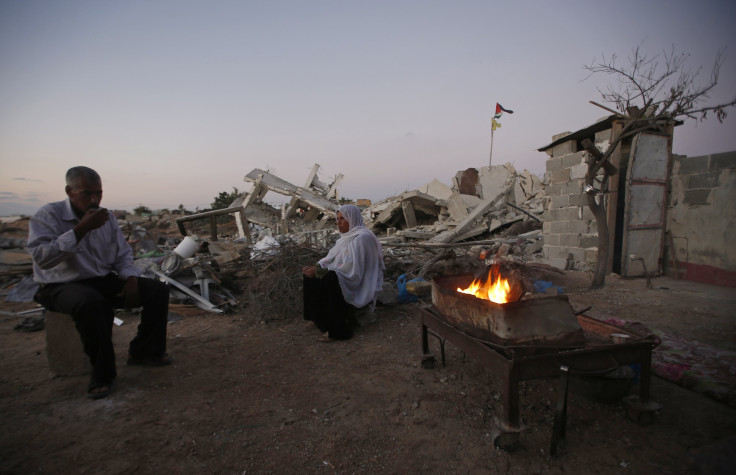UN, Palestinians Call For $550 Million In Aid Donations To Help Gaza After Israel's 'Operation Protective Edge'

The rebuilding of Gaza after the nearly two-month long Israeli offensive Operation Protective Edge will require $550 million, according to the United Nations and the Palestinian government. The two called for international donations to support those in Gaza who have been injured or displaced or who've lost their livelihood.
Donations will be divided up to cover food assistance, health needs, water, education and psychological support. More than 200,000 Gazans are still displaced two weeks after the conflict.
“We challenge the world to be ambitious and daring in helping us realize recovery, reconstruction and a better future for Gaza as part of an independent prosperous Palestinian state,” Deputy Prime Minister of Palestine Mohammad Mustafa and U.N. Humanitarian Coordinator James Rawley said in a joint statement.
At least 15 of Gaza’s 32 hospitals were damaged during the conflict, according to the U.N. Office for the Coordination of Humanitarian Affairs (OCHA). Three of the six hospitals forced to close during fighting are still closed now. In their initial assessment of the humanitarian situation in the Gaza Strip released Tuesday, OCHA estimated that about 373,000 children will require psychological help to recover.
At least 44,300 housing units were affected by clashes, and at least 18,000 are currently uninhabitable. The housing crisis will likely leave more than 108,000 people homeless.
The joint statement also called for an end to the blockade to help facilitate rehabilitation of the Gaza Strip. “An immediate measure is to end the blockade on Gaza and ensure our people never again experience the horrors of this summer.”
Israel’s blockade on the strip was partially lifted last month when Israel and Hamas agreed to an open-ended cease-fire. Israel eased restrictions on goods entering the Strip, but building materials, which Israel fears may be used to make explosives, are still not being allowed in, according to Agence-France Press.
"The crisis is far from over,” Rawley said in a separate statement.
© Copyright IBTimes 2024. All rights reserved.






















